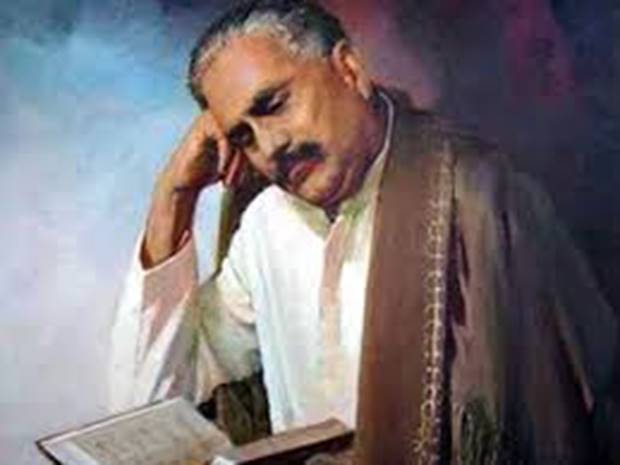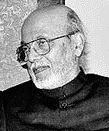
The Express Tribune
A Comment on Shikwa and Jawab e Shikwa of Allama Iqbal - Part 1 of 7
By Dr Nazeer Ahmed
Concord, CA

Ki Muhammed Se Wafa Tu Ne To Hum Tere HaiN
Yeh Jehan Cheez Hai Kya Luh Wa Qalam Tere HaiN
(If you are faithful to Muhammed, We are yours
Why speak of this world, the exalted Tablet and the celestial Pen are yours
Mention Shikwa and Jawabe e Shikwa and the ears of any Urdu-speaking person perk up. Composed by Allama Iqbal between 1909-1913, the duo was like a bolt of lightning that shot across the literary canvas of the subcontinent and shook up its audience with its thunder. With its audacity, eloquence, penetrating vision, loftiness of reach, richness of similitudes, expanse of thematic embrace, depth of historical and spiritual insights, nuance, subtlety, and power of its language it marked a new crest in Urdu poetry.
The message of Shikwa and Jawab e Shikwa is as relevant today as was more than a hundred years ago. Listen to its rendering by masterful Qawwals like the Sabri brothers, it brings tears to a believing heart. Shikwa literally means “a complaint” and Jawab e Shikwa means “answer to the complaint”. However, Shikwa is like the lament of a sensitive soul before the majestic audience of Divine compassion. As the lament ratchets back in the Divine mirror, it is modulated and becomes Jawab e Shikwa, which is an ode to the inner Self of the bard himself and a marching call (Bang e Dara) for the onward march of the caravan of his people.
Shikwa was composed in 1909 and caused quite a stir in the Muslim circles of India. Understood, and misunderstood by lesser souls, it was denounced by many as the sulking of an irreverent soul with many a mullah passing a fatwa of Kufr upon the poem. How can one “complain” to God Almighty for one’s own lapses? Isn’t He the All-Compassionate, Infinitely Merciful, Generous to the extreme, the Sustainer, the Cherisher of all that is in the heavens and the earth? How impudent!
Four years were to elapse before Iqbal published Jawab e Shikwa. It is not known if Iqbal had planned the two as a set from the outset or Jawab e Shikwa was composed as a response to the tumultuous reactions that the Shikwa evoked.
It was a turbulent time for the Muslims. Pax Brittania ruled the world. The British Raj was firmly entrenched in India. The Indian Muslims, constituting a third of all the Muslims in the world, were under the British thumb. The Iranians were exhausted from the constitutional revolution of 1906. In Turkey, the Young Turks had staged a coup d ‘etat against Sultan Abdul Hamid II. The Ottoman Empire, in heavy debt, was facing a rebellion in the Balkans and was soon to be invaded by the combined armies of Greece, Serbia, Montenegro, and Bulgaria, goaded and abetted by the entente powers Britain, France, and Russia.
Iqbal was trained in Germany and had seen firsthand how the nations of Europe had moved forward on the path of technological progress and prosperity while the Muslims remained mired in poverty, internal divisions, and fatalistic inertia. The Islamic horizon was cloudy indeed. His sensitive soul could no longer contain the pain at the condition of his community and it sang out as a complaint to Almighty God. It was a masterful note from a maestro to wake up his people from their slumber. In this effort, he was eminently successful. Once the Muslim civil society had absorbed the body blow of Shikwa, Iqbal released the Jawab e Shikwa. It was a response to the Shikwa reflected from the heavens.
Shikwa and Jawabe e Shikwa were a dialogue of Iqbal with the voice of his own inner soul rather than a kalam with God as Iqbal was not an anointed saint but a consummate poet. He stands in the same exalted class of savants as Farid Uddin Attar (d 1219) who embarks on a journey to find the Simurgh in his classic work Mantiq at Tayr (Conference of the Birds) and finds its reflection staring at himself in a celestial pond.
Iqbal sums up the response to his own complaint in these words: Ki Muhammed Se Wafa Tu Ne To Hum Tere HaiN;/Yeh Jehan Cheez Hai Kya Luh Wa Kalem Tere HaiN (If you are faithful to Muhammed, We are yours, Why speak of this world, the exalted Tablet and the celestial Pen are yours).
This summation is a reflection of the Ayah in the Qur’an wherein God commands the Prophet to say: In kuntum tuhibbunallaha fattabiooni (If you love Allah, then follow me). To love Allah one follows the Prophet. Conversely, to follow the Prophet is to love Allah. It is the power of divine love (Ishq e haqeeqi) that propels a human to the reaches of the exalted Tablet and the celestial Pen.
So, the question props up: Who is Muhammed (peace be upon him) following whom connotes love for God Almighty? And a follow-on question: What does fidelity to Muhammed (peace be upon him) mean?
The questions are profound and require a deep dive into the Qur’an and the Sunnah of the Prophet. To answer these questions, we will draw upon not only the guidance of the Qur’an and the Sunnah but also on the writings of intellectual giants like ibn al Arabi, Tirmidhi, al Gazzali, Rumi, Abu Haneefa and Ja’afar as Sadiq. We will also look at these questions from perspectives of shariah, tareeqa, history, and science.
Who was Muhammed (peace and blessings be upon him)? Or, more appropriately, who is Muhammed (pbuh)? Here is some guidance from the Qur’an on this question:
i. “Behold! There has come to you a Light from Allah and a perspicuous Book”.
ii. “And indeed! You are truly of an exalted innate character”.
iii. “And We sent you not except as a mercy for all the worlds”.
iv. “Muhammed is not the father of any of you but is the Messenger of God and the Seal of Prophets”.
v. “Indeed, Allah and the Angels send their salutations upon the Prophet”.
Several attributes of the Prophet stand out from the selected Ayats. Muhammed (pbuh) was Light from Allah. He was of an exalted intrinsic nature and character. He was mercy to all creation. He was a Messenger and a Prophet. He is so noble that Allah, the Creator and Sustainer of all the worlds, and his Angels continuously send their salutations upon him.
The Prophet was both Noor and Bashar (Light and human). Noor e Muhammadi and Bashariyet are deep oceans and a dive into them requires patience and knowledge. But without such patience, how can we do justice to the legacy of Iqbal? To scope this presentation and to bound it as a discourse on Iqbal’s Shikwa and Jawab e Shikwa, we will highlight certain aspects of Noor e Mohammadi and the exalted character of the Prophet. In addition, Iqbal’s work raises profound questions of philosophy, history, and culture. What does Iqbal mean when he says: “Tu Musalman Ho To Taqdeer Hai Tadbeer Teri” (If you are a believer, your action is your fate)? And his insight: “Tujhe Aaba Se Apne Kuch Bhi Nisbat Ho NaheeN Sakti” (There can be no comparison between you and your forefathers”? How was it that the believers who were once the architects of history were discarded by history? Astonishing!
One can write volumes on Shikwa and Jawab e Shikwa. Our brief Commentary is measured and focused and is divided into six parts: (1) Introduction (2) Shariah and the Development of Fiqh (3) History and Science (4) The Spiritual Sciences, the heart and the Nafs (5) Uruj: The ascent of the human to Divine presence, and (5) Tanazzulat: the descent of Divine Grace onto the created world and the maqam (station) of Noor e Muhammadi in this descent. Our attempt is to throw some more light on Iqbal’s message so that generations to come may continue to enjoy the lyre of Shikwa and Jawab e Shikwa and derive inspiration from it. We hope it will help answer the question: How did Muslims violate Meethaq e Risalat, the covenant that all the Arwah made with the Ruh of the Prophet (sas) to obey him and follow him. It is this violation of Meethaq e Risalat that is at the core of Shikwa and Jawab e Shikwa. (Continued next week)
(The author is Director, World Organization for Resource Development and Education, Washington, DC; Director, American Institute of Islamic History and Culture, CA; Member, State Knowledge Commission, Bangalore; and Chairman, Delixus Group)

